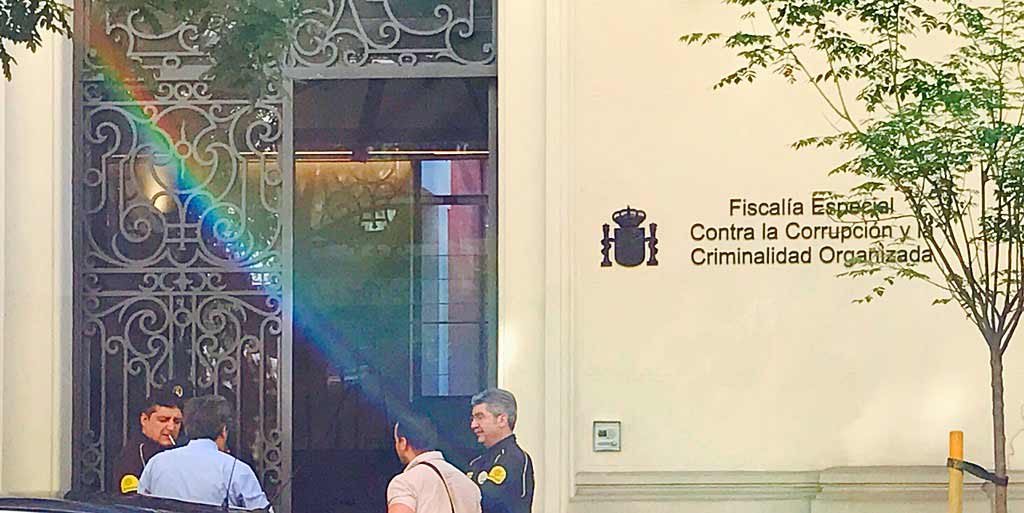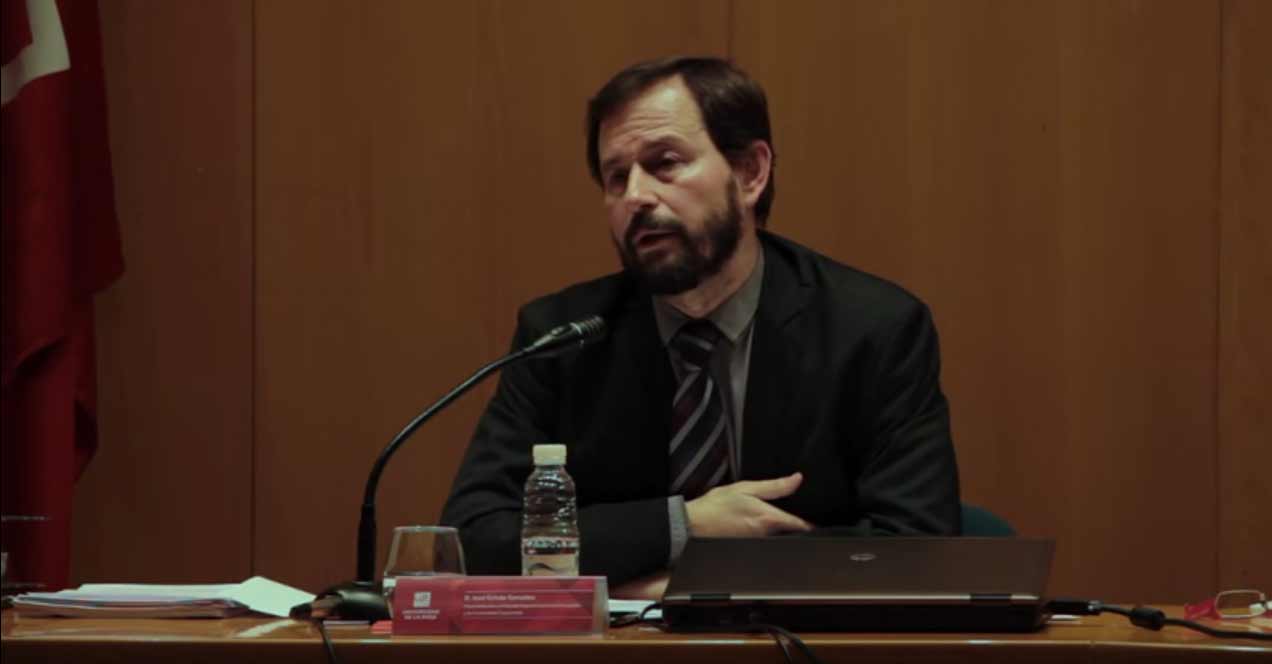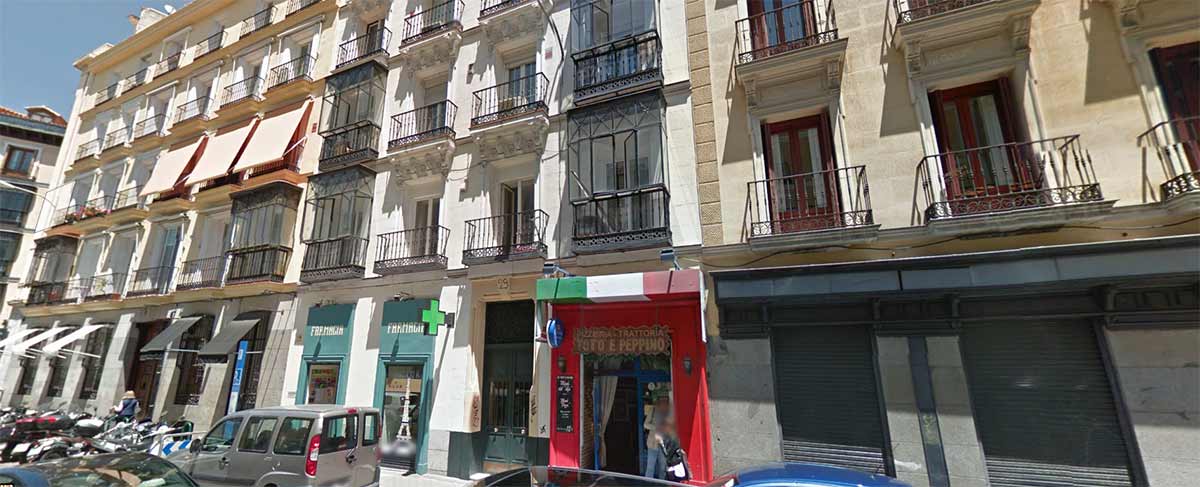Spain, a safe haven for mafias in a mafia-free country. Under the shadow of the Kremlin
[mie_header logo=/wp-content/uploads/2017/07/logo-mafie-en.png]
[parallax_image image_desktop=/wp-content/uploads/2017/07/spain-2.jpg image_mobile=/wp-content/uploads/2017/07/spain-2.jpg]
[sharer]
Spain, a safe haven for mafias in a mafia-free country. Under the shadow of the Kremlin
Written by Giuseppe Pipitone
Barcelona and Catalonia, Costa Brava and Costa del Sol, the Balearic islands and above all Ibiza, the Canary islands and in particular Tenerife. Also Murcia, Tarragona, Malaga, Valencia, not to mention the capital: Madrid. A few minutes are needed to pinpoint on the map all the towns and districts where mafia style organised crime is active. The Italian clans Cosa nostra, camorra, ‘ndrangheta and Sacra corona unita, and also the Nigerian Black Axe, the Albanians, the wealthy Russians: from North to South, from East to West reaching out to the islands, the land of the sun seems also to have been kissed by the tentacles of half the world’s piovra (octopuses). This description becomes more accurate – hence longer – if the person who draws this imaginary map of mafia in Spain is someone who has dealt with criminal associations in the Iberian peninsular for many years. Like Jose Grinda Gonzales and Juan Jose Rosa Alvarez, two magistrates of Fiscalia fighting corruption and organised crime in Madrid that ilfattoquotidiano.it met up with in the Spanish capital on 24th March 2017.
THE MAP OF MAFIAS IN A COUNTRY WITHOUT MAFIA
In Italy Grinda and Rosa would be two public prosecutors of the Anti-mafia District Directorate (DDA), but in Spain that word – the word mafia – doesn’t even exist so neither do anti-mafia prosecutors. In truth, the words “Cosa nostra”, “camorra”, “ndrangheta” – the main Italian criminal associations – fill the pages of investigative files which occupy every corner of the little Grima office on the first floor of 4 calle Manuel Silvela in Madrid, seat of Fiscalia anticorruption unit. In Spain though, anti-mafia associations are the same as any other criminal organisation: by law, the camorra clan Nuvoletta, for example, must be treated the same as any normal gang of Georgian burglars.
“if the mafia association law were introduced as it is in Italy, many of our problems would be solved”, say the two magistrates after finishing to fill the map of the Iberian peninsular with a series of pins, each one corresponding to a different criminal organisation. “The ‘ndrangheta is active in Girona and in the province of Madrid, in Murcia and in Catalonia. The camorra is in Barcelona and Tarragona, but also in Valencia and Tenerife. The camorra can be found In Ibiza too where Cosa nostra settled many years ago. The Sicilian mafia is also in Zaragoza and naturally here in Madrid too”. Explains Rosa who has been investigating into Italian criminal associations for years.
“In Malaga on the other hand, there’s a bit of everything” adds Grinda, who seems almost to cite the 2016 Italian DIA report. In that report the logistic importance of Spain is highlighted, used as a platform both by Latin American narco-traffickers and the European clans: in this respect, Spain is a sort of safe haven for half the world’s criminal associations. “All the criminal organisations present in Spain deal in drug trafficking, within our country but most of all towards Europe: Italy, Holland, France, Belgium, Germany”, explains Grinda, who goes on to say: “When I say all criminal organisations I mean all. They are all here in Spain: Italians, Albanians, Nigerians, but most of all Russians who are the emerging mafia here”.
The Spanish judge over the past few years has, in fact, conducted two important investigations into criminal organisations which have shifted their area of influence from Moscow to the Iberian peninsular, thanks to important relations with entrepreneurs and politicians of the highest level in their homeland. These operations led to the arrest of more than 60 people including four top godfathers. “The Russians – he continues – move over a more restricted territory than Italian groups. We could say that they have a larger presence on the sea: Barcelona, Tarragona, Majorca, Alicante, Malaga. This is because the big shipments of cocaine from Latin America come in by sea, whereas those of marijuana arrive from Africa and more recently even from Albania.

Fiscalia Contra la Corruptiòn y la Criminalidad Organizada
ITALY-SPAIN: TWO COUNTRIES FOR ONE MAFIA
But how is the presence of mafias in Spain perceived? Spanish magistrates make a clear cut split: “If we are speaking of concern, public alarm, then it is clear that the most feared by the population are the Georgian clans who burgle apartments, people and shops. It is normal that people perceive more clearly dangers related to private property, theft compared to money laundering. Also because you don’t even see Georgian thieves: they attract as little attention as possible, spending little, living in rented property and driving used cars, almost all of their earnings are sent to their country of origin. They leave nothing here, except the fear of tourists and Spanish of being robbed”.
The problem becomes more complex when speaking of organisations more powerful than normal house burglars, even when organised into criminal associations. “All the mafias – explains Rosa – choose Spain for two reasons: firstly because it’s here that the drugs arrive from Latin America. And then because it is here where revenues from trafficking those same drugs put on the world’s markets, are invested. And it was by following the traces of drugs that Italian investigators discovered how Spain has become the “engine” for handling and dealing drugs on the old continent. A focal point so active as to have direct impact on the power of the clans.
In January 2016 for example, the DIA began an operation against the camorra clan Nuvoletta for international drug trafficking. Emerging from the enquiry was a change in the management balance of drug trafficking from Spain, transmitted by the Polverino clan – decimated by arrests – to their all-time ally Nuvoletta, returned to the forefront over the past few years. The enquiries were a cooperative effort between Italian and Spanish investigators: in this way they were able to prove the existence of affiliates of the Italian mafia families in Spain. “The arrest of Domenico Verde – says Rosa – brought us to understand that the Polverino camorra clan is present and active in Spain to the same extent as in Italy: there are no frontiers. In Italy they see the cocaine that arrives from Spain, here they launder the profits they’ve earned from selling in Italy”. It’s as if the criminal affairs of the Polverino clan were divided into two branches, two circular economic sectors between two countries.
DIRTY MONEY AT PUERTA DEL SOL
According to the report “Mafia investments”, by the Transcrime research centre of Milan Catholic University for the Italian Ministry of Internal Affairs, the range of sectors in which the Italian clans launder money is broad and heterogeneous: going from the normal restaurants and pizzerias to hotels, from real estate agencies to construction companies, from firms involved in transportation to wholesale commerce, through to agriculture and fisheries. It is investigations like “Passion fruit” that once again bring to light the attempts at expansion of the Moccia group in the fruit and vegetable market of Barcelona.
Or like the same investigation that decimated the Polverino clan, ready to invest millions – but fell through – to build 25 terrace houses in Tarragona. The question that springs to mind is: how do the clans’ companies and agencies work in Spain? Do they respect the rules or do they carry on the same way they do in Italy, threatening the competition and doping the market with low prices, fixed tenders, cash-in-hand workers? “Up to now it seems they tend to stick to the laws. At most, they pay their taxes late but we haven’t found examples of clan businesses that threaten honest competition. This is because the mafias don’t have complete control over the territory in Spain: here the mafiosi act like normal people. Of course, there is the underworld, where the same people who manage construction companies and restaurants dedicate themselves to drug trafficking”.
Says Grinda who has perhaps read the interceptions in the enquiry Middle World on Mafia capital. To understand how widespread the mafia reality is in Spain, the judge indicates a point behind him, out of his office window. “Over there is a restaurant called Todo el Peppino, which has been at the centre of some of our enquiries. The owners are Salvatore and Raffaele Romano. In December 2014 Salvatore was killed: his wife was told he was wandering in the woods. But he had gone to South America: he wanted to deal personally with the narcos. He wanted to do business cutting out the middleman Raffaele Imperiale, who is serving a prison sentence in Italy: but Romano never came back from South America”. Romano’s story tells something else. To mend relations between the dead restaurant owner and Imperiale, it would have been necessary to know they were of the same clan. “But they couldn’t know this in Italy because Imperiale and Romano are two different families: they aren’t a proper clan. The same thing happened when we were investigating the Aprea-Romano clan. Examining magistrates in Naples with whom we’ve been collaborating for some years, told us that it wasn’t possible they were working together because in Scampia the Aprea and the Romanos had been feuding for years. But they were: different families, often enemies in Italy, do business together in Madrid”.

Josè Grinda Gonzales
THIEVES WITHIN THE LAW
And if the main areas of the largest Spanish towns have witnessed a flourish in restaurants, hotels and buildings managed and built by the mafias who speak Italian, the way the mafias made in Moscow have settled in, is very different. “The Russians launder a lot, Italian mafias arrived much earlier, back in the ‘90s, but the Russian mafia has really penetrated Spanish economy, thanks to significant investments, all made within the last 10 years, explains Grinda who, four months ago sent the former Soviet Union a 500-plus page report on Vory v Zakone which means thieves within the law and is the name the big bosses of the Russian mafia have given to their organisation. Not only are the names of gangsters and criminals included within those pages but also those of high profile personalities. Such as Michael Cherney and his former business partner Oleg Deripaska. They are the richest Russian, hence global, magnates in the field of alluminium. Cited in the Panama Papers as being a multimillionaire, in 2014 Interpol issued an arrest warrant for Cherney on the basis of accusations made by Grinda.
“Starting from the affairs of an iron company in Alicante we were able to demonstrate that Cherney is guilty of association with criminal intent and money laundering. We sent our investigative files to the Russian prosecution: we are confident”, continues Grinda, who connects the “thieves within the law” investigation to the serious accusations that had been made against him in Spain. In fact some Iberian newspapers have recently printed news of a complaint filed against him by the Spanish lawyer Ignacio Pelàez, who asked that a case against Grinda be reopened. The accusations are blasphemous: paedophilia, caused by some tweets that, according to Peràez, had been posted on Twitter by the magistrate to an underage girl.
“The Russian prosecution warned me that former minister of technology Leonid Reiman had paid Ignacio Pelàez to accuse me of paedophilia, thus ruining my public image and causing my destruction, alleges Grinda. In fact, the enquiry into the Russian mafia in Spain became at some point a spy story of blackmail, vendetta and powerful names. Very powerful. First over all is precisely that of Reiman, the second is that of the former defense minister Anatolij Serdukov, the third is that of the Russian president Vladimir Putin. According to a cable sent to Washington from the American Ambassador in Madrid, Grinda had revealed to an FBI officer that Russia is finally “a virtual mafia state, where it is impossible to distinguish the activities of the government from those of criminal organisations”. From the results of the Spanish magistrates’ investigations – reports the cable revealed by Wikileaks and published in the Guardian on 3rd January 2010 – “Russia and its intelligence agencies are using mafia bosses to carry out criminal operations such as firearm trafficking”. Moscow’s strategy, still according to words accredited to Grinda, is “to use organised crime groups to do that which the government can’t do officially”, like a whole series of operations to destabilise Turkey or to install people into Chechnya, Belarus and Ukraine who are loyal to Vladimir Putin.
“I don’t have any investigation connected to Putin, denies Grinda placidly. “Wikileaks repeats what a member of the FBI claims to have heard from me. But the facts are otherwise. There was a meeting between the American and Spanish examining prosecutors in January 2010, because the US was pushing for the fight against the Russian mafia. They asked the Spanish prosecutors to cooperate. It was the US who asked for assistance. The Spanish Attorney General then asked me to take up the question of the Russian mafia. And I met up with an FBI agent. I can’t reveal what was said because it was a private meeting. I can only say that there isn’t any investigation concerning Putin in Spain. At least not in this office”. Connections with the Kremlin had been presumed due to relations between Russian mafia members present in Spain and two former ministers of Moscow, who are in fact Serdukov and Reiman. The name of Putin is mentioned three times, by the way, in the Spanish magistrates’ lengthy report, because some suspects pronounced it. “I repeat: there is absolutely no investigation connected to Vladimir Putin. Our report was sent to the Russian prosecution with whom we are trying to collaborate. It is the same localised by lawyer Pelàez in Moscow, where he met Reiman who asked him to make those accusations against me. That which Pelàez did was clearly intended to damage my public life. But in ten years of investigating the Russians I’ve learned that with them an old Spanish saying fits: o plomo o plata”. Literally meaning – as Pablo Escobar often repeats in the TV series Narcos – or lead or silver. Grind translates it slightly differently: “Or you let yourself be corrupted or we’ll cause your civil death”.

Totò e Peppino restaurant in Madrid
A COMMON PROBLEM. AND A COMMUNITY ONE
In Spain however, it isn’t just the criminal geography to have been colonised by the presence of half the Continent’s mafia clans. Over the past few years Iberian leglislative instruments have been updated and modified taking example from the one country in Europe that has the most experience in the fight against mafia – namely, Italy. The DIA 2016 report recalls that it was in Spain where one of the few examples of confiscation res judicata overseas was carried out. This refers to 16 properties and 3 businesses producing and selling oil confiscated from brothers Diego and Ignazio Agrò from Racalmuto, in the province of Agrigento.
“Recent years have seen some reform, especially after 2010, when the money laundering norms were changed and it became possible to introduce seizure of goods, but the legislation still isn’t comparable to the Italian one”, says Rosa who together with Grinda and other colleagues proposed some months ago the introduction of a new reform: “We suggested inserting the crime of mafia association seeing that currently all criminal organisations are treated in the same way. It is also fundamental to import the regulation of confiscation of goods, as has been done in Italy”. Juan Fernando Lopez Aguilar, former Minister of justice in the first government of Josè Zapatero (2004 – 2007) and currently member of the European parliament for PSE, is more optimistic about Spanish anti-mafia laws: ilfattoquotidiano.it met up with him on 27th April 2017 in Bruxelles. “I believe – says Lopez Aguilar – Spain to be one of the most advanced countries in the EU for anti-mafia laws. This is because the other member states underestimate the problem, they think it’s just an Italian or Spanish priority. It’s the same sort of situation as seen in the past when in Spain we were plagued by terrorism and asked Bruxelles for help. However, in Europe they considered it just our problem: now they’ve realised that terrorism is everyone’s problem”. Apart from national legislation, Grinda and Rosa also complain of various difficulties when having to deal with other EU member states. “Extradition laws should be more homogeneous. – they say – let me give the same example I gave three months ago in the European parliament: if a Spanish criminal at large is arrested in France, extradition is almost immediate. If the arrest is made in Germany it is always a big problem. In truth, the dream would be to have a unified penal code in Europe, but obviously the laws would have to be the same too”.
